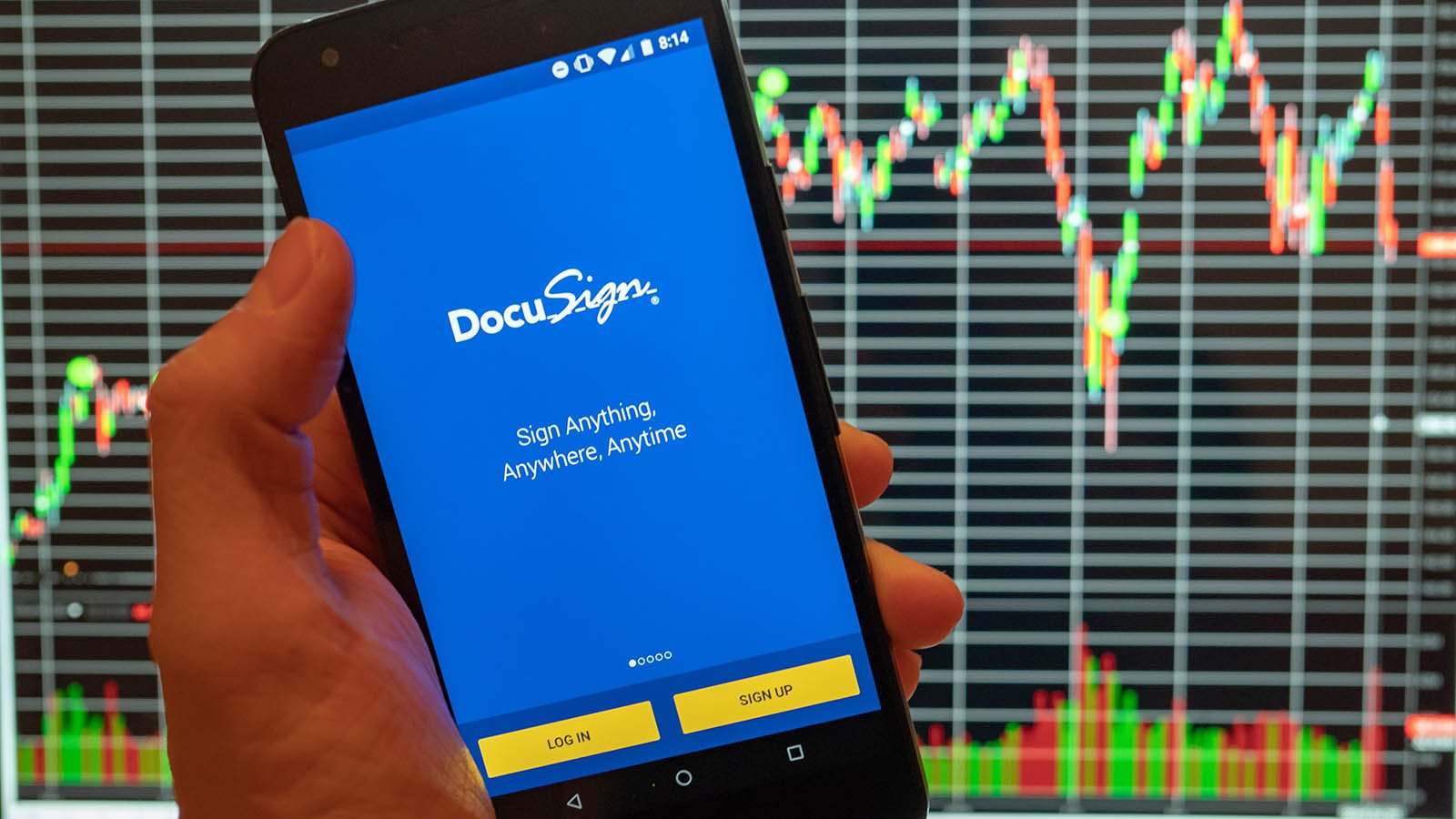Just as the world resumed life after past pandemics, things will eventually go back to normal. The novel coronavirus will fade into history. As that transition occurs, many companies that are currently benefiting from the work-from-home trend will start to lose revenue. Investors will become much less enchanted by these work-from-home stocks.
And with multiple companies poised to introduce successful Covid-19 vaccines, it looks like that transition will come relatively soon. Time is running out for stocks that have gotten a huge boost from the work-from-home trend.
After a vaccine is delivered, we will see many of the current valuations on the market drop meaningfully. What’s more — fueled by new and better therapeutics and better methods of care — the case fatality rate of Covid-19 has already declined anyway. As people start to work in offices again in the near-term, these stocks stand to lose:
Work-From-Home Stocks to Sell: Peloton (PTON)

Because most people are not going into the office now, there hasn’t been much demand for quick workouts before or after work. Similarly, nobody is exercising in gyms during their lunch hour anymore. And of course, some gyms still remain closed. In fact, many Americans are afraid of going into fitness centers during a pandemic altogether.
As an alternative, many people are using their own equipment at home now. In turn, that trend has fueled tremendous demand for Peloton’s exercise bikes and treadmills.
In September, the company provided revenue guidance of $720 million to $730 million for its first quarter, versus analysts’ average estimate of $499 million at the time. The company also predicted that its Q1 EBITDA would come in at around $90 million, compared with the average outlook of just $18 million.
Additionally, for its entire fiscal year, Peloton expects its top line to come in at about $3.5 billion to $3.65 billion. This is contrary to the mean estimate of $2.7 billion. In its previous fiscal year (which ended in June), the company reported revenue of $915 million.
Of course, these numbers are impressive. With PTON stock trading at a forward price-earnings ratio of 322, many investors are betting that the company’s growth will continue indefinitely.
However, as more people return to the office in coming months, and as the company’s competition ramps up, Peloton’s growth will likely slow significantly. Going forward, I believe PTON stock will retreat as its pandemic-induced golden era starts to wind down.
Domino’s Pizza (DPZ)

Naturally — with so many people staying in — pizza delivery has benefited from the current work-from-home trend. Instead of going to restaurants with coworkers for lunch, many have ordered from Domino’s and the like. And whereas pizza was probably in the middle of the pack before when it came to commuter purchases, now it is likely far-and-away the leading option for a quick dinner. That is because pizza is delivered fast and usually at no extra charge, excluding tips.
On top of this, Domino’s and its peers have certainly benefited from the closure of restaurants, as well as the public’s fear of eating out. In a blink, Domino’s slipped into its new role as one of the work-from-home stocks — and gained massively.
Because of this success, many investors are still buying DPZ stock. Further, in an Oct. 20 article, Seeking Alpha columnist Stella Mwende wrote that the company “is positioning itself to accelerate growth by taking care of its customers and satisfying the unprecedented demand occasioned by this Covid-19 pandemic.” Mwende noted that the company’s same-store sales had surged more than 17% year-over-year in Q3. Additionally, its top line had jumped nearly 11% YOY.
But what Mwende did not address is, to me, the proverbial elephant in the room: what will happen to Domino’s growth once the novel coronavirus eases? I believe that — once the pandemic slows and Americans return to offices and restaurants — Domino’s growth will slow, too.
Right now, this slowdown doesn’t appear to be priced into DPZ stock. The shares are trading at a forward price-earnings ratio of 30 and a trailing price-earnings ratio of 37. Those are very high valuations for a restaurant stock. And I don’t think they will last.
DocuSign (DOCU)

Speaking of elevated valuations, DOCU stock is one of the highest of the high fliers among work-from-home stocks. The shares are trading at a gigantic forward price-earnings ratio of 217, a huge price-sales ratio of 34.4, and a skyrocketed market capitalization of over $40 billion.
The new normal has undoubtedly contributed to DocuSign’s explosive growth. In Q2, its billings jumped 61% YOY. Since most white-collar employees are now working from home, even documents have to be signed by multiple people virtually. DocuSign was already tailor-made for that need.
What’s more, another factor in DocuSign’s rapid expansion has been an increase in buying homes and vehicles online during the pandemic.
However, I believe that as Covid-19 is reigned in, many Americans will be making big purchases in person again. At that point — for tens of millions of consumers — the desire to see the homes and vehicles they’re considering up close will far outweigh fear and the inconvenience of traveling.
Additionally, as I pointed out in a previous column, DocuSign could easily be crushed by much bigger competitors, following in the path of Dropbox (NASDAQ:DBX). Unlike Amazon (NASDAQ:AMZN) and much like Dropbox, DocuSign lacks network effects.
Sure, DocuSign has gotten a huge boost from the work-from-home trend. But I’m not convinced that momentum will carry it past the pandemic.
On the date of publication, Larry Ramer did not have (either directly or indirectly) any positions in the securities mentioned in this article.
Larry Ramer has conducted research and written articles on U.S. stocks for 13 years. He has been employed by The Fly and Israel’s largest business newspaper, Globes. Larry began writing columns for InvestorPlace in 2015. Among his highly successful, contrarian picks have been GE, solar stocks, and Snap. You can reach him on StockTwits at @larryramer.
